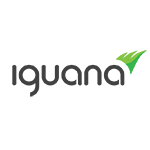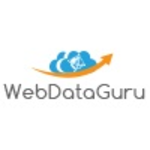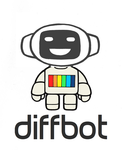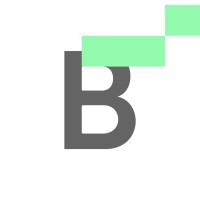Description

Iguana

WebDataGuru
Comprehensive Overview: Iguana vs WebDataGuru
To provide a comprehensive overview of Iguana and WebDataGuru, it's essential to break down their primary functions, target markets, market share, user base, and key differentiating factors. Both are involved in data-related solutions, but they serve different niches and come with distinct functionalities.
Iguana
a) Primary Functions and Target Markets
Iguana is typically associated with healthcare information exchange systems, most notably the Iguana Integration Engine developed by iNTERFACEWARE. Its primary functions include:
- Data Integration: Iguana facilitates seamless data exchange between different healthcare systems through HL7 standards.
- Interoperability Solutions: It allows disparate systems within the healthcare domain to communicate effectively.
- Custom Interface Development: Users can create customized solutions to meet specific integration needs.
Target Markets:
- Healthcare providers and hospitals looking to integrate various IT systems.
- Clinics and health information exchanges aiming to improve data interoperability.
- Medical software vendors seeking robust integration solutions.
b) Market Share and User Base
Iguana, especially the integration engine by iNTERFACEWARE, holds a solid position in the healthcare sector due to the critical need for interoperability and data integration solutions. While specific market share figures are proprietary, its widespread adoption in hospitals speaks to a substantial user base within its target market.
c) Key Differentiating Factors
- Specialization in Healthcare: Iguana is specifically designed for the healthcare industry and is compliant with healthcare regulations like HIPAA.
- User-Friendliness: It offers a user-friendly interface and drag-and-drop functionality, which simplifies complex integration processes.
- Customization: High degree of customization opportunities to fit specific healthcare workflows.
WebDataGuru
a) Primary Functions and Target Markets
WebDataGuru is a company that provides web scraping and data extraction services. Its primary functions include:
- Data Mining: Extracting data from diverse web sources for analysis.
- Price Monitoring: Tracking pricing changes across e-commerce platforms.
- Custom Scraping Solutions: Creating tailored data harvesting solutions for clients.
Target Markets:
- Retailers and e-commerce businesses requiring competitive price analysis.
- Market analysts needing comprehensive data insights for strategic decisions.
- Businesses across sectors looking to leverage web data for various purposes.
b) Market Share and User Base
WebDataGuru operates in a highly competitive market with numerous players offering web scraping services. Its user base includes businesses in retail, e-commerce, and market research industries. The exact market share is difficult to pinpoint due to many private firms in this domain, but WebDataGuru is recognized for its tailored solutions.
c) Key Differentiating Factors
- Versatility: Beyond price monitoring, WebDataGuru offers a broader range of data scraping services for various industries.
- Custom Solutions: Ability to provide highly tailored solutions that meet specific needs of clients across different industries.
- Technological Expertise: Strong expertise in handling large-scale data extraction projects with robust infrastructure.
Comparison
- Target Focus: Iguana is healthcare-specific, addressing data integration and interoperability, while WebDataGuru serves across industries focusing on data extraction.
- Market Penetration: Iguana has a niche market penetration in healthcare, whereas WebDataGuru has a broader but more diffuse market reach.
- Functionality: Both products offer high customization; however, Iguana’s primary function is integration in healthcare, while WebDataGuru offers data extraction services broadly applicable across sectors.
Overall, the choice between Iguana and WebDataGuru would depend on whether the need is for healthcare data integration (Iguana) or broader web data extraction solutions (WebDataGuru).
Contact Info

Year founded :
1985
Not Available
Not Available
Belgium
Not Available

Year founded :
2015
+1 917-727-7959
Not Available
United States
http://www.linkedin.com/company/webdataguru
Feature Similarity Breakdown: Iguana, WebDataGuru
To provide a detailed feature similarity breakdown between Iguana and WebDataGuru, we need to explore their core functionalities, user interfaces, and unique features. Since exact details may vary based on updates and versions, here's a general comparison based on typical data extraction and management tools:
a) Core Features in Common
-
Data Extraction: Both platforms offer robust data scraping capabilities from various sources including websites, databases, and other digital platforms.
-
Data Structuring: Tools for organizing and structuring extracted data into meaningful formats, often supporting CSV, JSON, or Excel.
-
Automation: The ability to automate data extraction schedules, reducing manual intervention.
-
Customization: Options to customize extraction processes according to user needs, often allowing for tailored scraping scripts or templates.
-
Real-Time Data Processing: Features that allow for processing and scraping of data in real-time or near-real-time.
-
APIs: Provision of APIs for integrating with other applications or for fetching data programmatically.
b) Comparison of User Interfaces
-
Iguana: Known for its user-friendly interface that's often designed around drag-and-drop functionalities, which can be appealing to users with varying technical expertise. The focus tends to be on simplifying the process of building data extraction flows.
-
WebDataGuru: Typically leans toward a more business-centric interface, potentially offering dashboards that cater to data analytics professionals. May provide more options tailored for enterprise-level needs.
Overall, the choice depends on the target audience; Iguana might prioritize ease of use for a broader user base, whereas WebDataGuru could focus on providing detailed analytics and reporting features suited for business users.
c) Unique Features
-
Iguana:
- Interactive Data Mapping: Some versions offer advanced interactive data mapping features allowing users to visualize the data flow.
- Cross-Platform Support: Offers comprehensive cross-platform integration capabilities, making it flexible in various IT environments.
- Community and Support: Might have a larger or more active user community, which can be a significant advantage in troubleshooting and learning.
-
WebDataGuru:
- Industry-Specific Solutions: May offer tailored solutions for specific industries, such as retail or market research, providing additional value through specialized features.
- Competitive Pricing Analysis: Features focused on analyzing competitor pricing data, useful for e-commerce businesses.
- Data Cleansing Tools: Enhanced data cleansing functionalities to ensure the high quality of data output.
Conclusion
The choice between Iguana and WebDataGuru largely depends on specific business needs, technical environment, and user familiarity with data extraction processes. Companies should assess the extent of customization, industry-specific capabilities, and ease of use when selecting between these platforms.
Features

Not Available

Data Analysis
User-Friendly Interface
Data Extraction
Data Quality Assurance
Integration
Best Fit Use Cases: Iguana, WebDataGuru
Iguana and WebDataGuru are tools designed for different data management needs, and their use cases reflect their unique capabilities and features. Here’s a breakdown of the best fit use cases for each:
Iguana
a) Types of Businesses or Projects:
-
Healthcare Institutions:
- Iguana excels in integrating and managing healthcare data. It's ideal for hospitals and clinics needing seamless integration between various healthcare systems like Electronic Health Records (EHR), Laboratory Information Systems (LIS), and other medical software.
-
Insurance Companies:
- It’s useful for companies needing to manage complex data from multiple sources. Iguana can help integrate disparate data streams, ensuring smooth communication between policy management systems, claims processing systems, and customer relationship management (CRM) tools.
-
Financial Services:
- Businesses in the financial industry can use Iguana for secure and compliant data exchange between different banking and financial applications, ensuring that critical transactional and customer data is synchronized across platforms.
d) Industry Verticals and Company Sizes:
- Healthcare: With an emphasis on data integration from multiple healthcare providers and compliance with regulations like HIPAA.
- Mid to Large Enterprises: Particularly those needing complex data orchestration across various systems and platforms, such as interconnected hospital networks or multinational insurance firms.
WebDataGuru
b) Preferred Scenarios:
-
E-commerce Businesses:
- WebDataGuru is tailored for e-commerce platforms needing competitive pricing intelligence, product availability tracking, and market trends analysis. It scrapes and analyzes data from competitors to provide actionable insights.
-
Market Research Firms:
- It's an excellent choice for agencies conducting comprehensive market analysis, providing tools for data extraction from diverse sources to build detailed market reports and forecasts.
-
Retail Chains:
- Ideal for businesses needing to optimize pricing strategies through competitor pricing analysis or those looking to enhance inventory management by understanding stock levels in competing stores.
d) Industry Verticals and Company Sizes:
- Retail and E-commerce: Focused on competitive analysis and market trends, suitable for both small to medium-sized enterprises (SMEs) and larger international retailers.
- Digital Marketing and Analytics Firms: Companies of varying sizes that require extensive data collection and analysis capabilities for strategic decision-making.
Comparison
- Iguana is more suited for businesses with complex systems integration needs, particularly in industries requiring rigorous data security and compliance, such as healthcare and finance.
- WebDataGuru caters to businesses focused on competitive analytics and data scraping, like e-commerce and marketing firms, where understanding market dynamics and competitor behavior is crucial.
In conclusion, the choice between Iguana and WebDataGuru depends significantly on the industry, the specific data management needs, and the scale of the business operation, with Iguana leaning towards system integration and compliance, while WebDataGuru emphasizes market intelligence and data extraction.
Pricing

Pricing Not Available

Pricing Not Available
Metrics History
Metrics History
Comparing teamSize across companies
Conclusion & Final Verdict: Iguana vs WebDataGuru
Conclusion and Final Verdict for Iguana and WebDataGuru:
Choosing between Iguana and WebDataGuru involves evaluating their capabilities, pricing, scalability, and overall user experience. Here's a comprehensive analysis:
a) Overall Value: Considering all factors, the best overall value between Iguana and WebDataGuru depends on the user's specific needs. However, if the priority is a robust data extraction and integration platform with advanced analytical features, WebDataGuru might offer better overall value due to its strong reputation in delivering comprehensive data solutions and customizability for various industries.
b) Pros and Cons:
Iguana:
-
Pros:
- User-friendly interface that simplifies the data extraction process.
- Cost-effective for small to medium-sized businesses looking for basic web scraping solutions.
- Offers flexibility in data handling and transformations.
-
Cons:
- Limited features in scalability compared to more robust platforms.
- May lack advanced customization and deep analytics capabilities.
- Support and updates might not be as extensive as other competitors.
WebDataGuru:
-
Pros:
- Highly customizable, suitable for a range of industries and use cases.
- Robust platform with advanced data extraction and analysis features.
- Strong customer support and regular updates ensure reliable operation.
-
Cons:
- Potentially higher cost, making it less appealing for startups or small businesses.
- Complex configuration might require a steeper learning curve.
- Specialty features may not be necessary for users with basic data extraction needs.
c) Recommendations for Users:
-
Assess Your Needs:
- If you require basic web scraping with a straightforward approach, Iguana is a viable choice.
- For complex data extraction needs and advanced analytics, consider WebDataGuru.
-
Budget Considerations:
- Evaluate your budget to determine if the additional features of WebDataGuru justify its potentially higher cost.
- Iguana can be a cost-effective solution for simpler requirements.
-
Scalability and Future Growth:
- Choose WebDataGuru if you anticipate growing data needs and require scalable solutions.
- For more static data needs, Iguana could suffice without unnecessary complexity.
-
Trial and Support:
- Leverage any free trials or demos provided by both platforms to better understand their interfaces and capabilities.
- Evaluate the support and community engagement, which can significantly impact your experience with either product.
Ultimately, the decision should be based on the precise data needs, budget constraints, and long-term goals of your organization. Both platforms offer distinct advantages tailored to different user preferences, so carefully weighing these factors will guide you to the best choice.
Add to compare
Add similar companies



